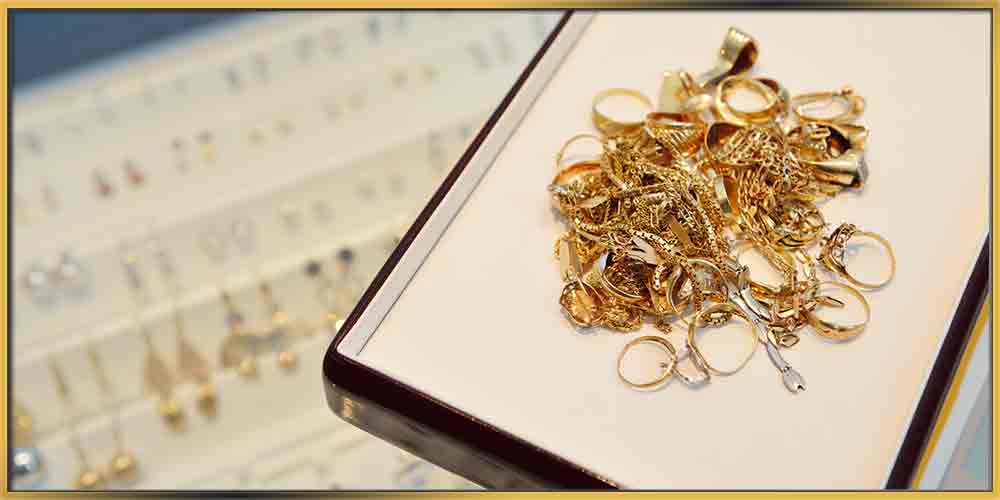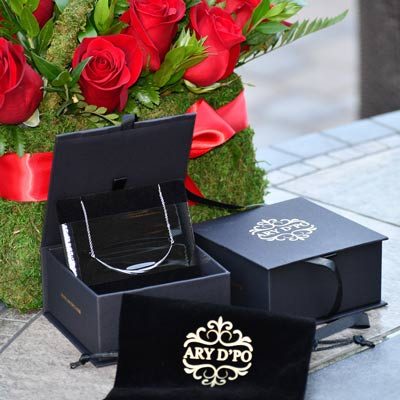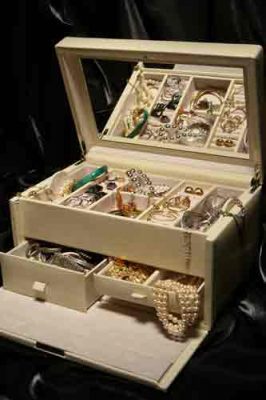Fun Reading, Tips & Recommendations
How To Care For And Store Your Precious Jewelry Collection
When you have beautiful pieces of jewelry you love, of course you want them to last for a long time. They were probably expensive, and have sentimental value to you. To reflect how special your jewelry is to you, you should keep your pieces sparkly, shiny, and in great condition! Here are some tips on how to care for and store your jewelry.
Unfortunately, we live busy lives. Necklace clasps break. Earrings get lost. Scratches happen. While on some level, this damage is unavoidable, it’s best to minimize the risk. There are so many great techniques you can use to look after your jewelry.
First and foremost, you want to keep the pieces clean and in an environment where they won’t get damaged. You can also use organizational techniques for storing your jewelry. When everything’s in order, you’ll be far less likely to lose your valued pieces of jewelry.
Caring For Your Jewelry
-
Avoid exposure to chemicals
Most gold jewelry is combined with other metals, as it is too soft to shape on its own. Many other pieces of jewelry are made from sterling silver plated with rhodium. Rhodium is very strong and doesn’t tarnish. However, you need the plating to be in good condition to keep the piece looking its best. No matter what your jewelry is made of, it’s best to protect it from outside elements.
Many pieces of jewelry don’t react well to substances that aren’t 100% natural. Think about how many non-natural substances your jewelry comes into contact with each day. Perfumes, sunscreens, makeup, lotions, cleaning products. The harsh chemicals in these products can tarnish your jewelry.
Make sure you remove your pieces before applying alcohol-based perfume, non-natural beauty products, swimming in chlorinated water, and using any cleaning chemicals. Remember that the sun is a natural bleaching agent, so remove jewelry if you plan on spending a long summer’s day outside.
-
Keep your jewelry clean and dry
Keeping your jewelry dry is a key way to keep it tarnish free. Take extra care to make sure your jewelry is dry. It’s best to remove rings or even bracelets when swimming, showering, doing dishes, or washing your hands.
When you take off your jewelry at the end of the day, it is also best to wipe it down. You can use a clean cotton or felt cloth. This will remove any oils and residue that may have attached to the piece throughout the day.
-
Wash jewelry in warm water with dishwashing soap
When you want to make your pieces sparkle, it’s a good idea to clean them. Some people recommend washing with toothpaste, but this is far too harsh.
Instead, opt for warm water with a little dishwashing soap. Gently wipe the piece with a clean cloth or cotton bud. Once you’re finished, remember to thoroughly dry off the piece.
Storing Your Jewelry
Yes, it’s important to keep your pieces clean, dry and avoid exposing them to chemicals. However, it’s also important to store your jewelry in a healthy environment, and an organized way. This is an important part of caring for your jewelry. Storing jewelry well is key to making sure your collection lasts a long time.
-
Keep your jewelry pouches
Jewelry from ARY D’PO, and most other designer jewelry brands, will come in a felt pouch. These are specially designed to keep your jewelry dry, clean and safe. These can be a great way to store pieces of jewelry while travelling or when you take it off to work out.
-
Store your earrings together
Some people put all their earrings mixed together in one bowl or tray. This makes it very easy to lose earrings. When you take out your earrings, make sure you attach their back, and store each piece in its own bag.
-
Always do up necklace and bracelet clasps
Pendants are often lost when they fall off the end of the chain on an unworn necklace. Doing up the clasps stops this from happening. It also makes it much harder for chains to tangle with others. When necklaces get caught on each other, they can often get scratched and damaged in the untangling process.
-
Hang necklaces on hooks
When necklaces lie down, the chains can become damaged. This is particularly prone to happening if they get tangled with others. Get a jewelry rack where you can hang your necklaces on hooks. This will keep the chains straight and well-weighted.
-
Store jeweled pieces by themselves
Diamonds score a 10 out of 10 on the Mohs scale of mineral hardness. This makes them one of the hardest substances known to man! Therefore, they can be prone to scratching and damaging other pieces they are stored with. Many other gemstones are also hard, and the way they are cut can give them sharp edges.
Soft materials like gold and pearls can get gashed when stored with gemstones. It is recommended to store jewelry in a compartmentalized box. If you don’t have one, at least keep your gemstones away from other pieces.
-
Store silver with chalk
The most common issue with silver is tarnishing. It easily tarnishes from moisture, so if you live in a humid place this can be very frustrating.
However, some recommend keeping one or two pieces of regular chalk in with your silver can easily solve this problem. This is because chalk absorbs moisture. Just remember to wrap your silver in a clean cloth first so it doesn’t get chalk marked.
-
Store jewelry in a safe location
It seems obvious, but remember to make sure you have a secure location for your jewelry. If you own a safe, this is perfect. Otherwise, a discreet drawer with a lock is the next best thing. Be very cautious about letting people know where it’s kept.
Your jewelry collection is likely precious and highly important to you. Remember to guard it carefully. Store your jewelry in a safe and secure location. Commit to caring for and cleaning your jewelry. If you do these things, you’ll have a beautiful jewelry collection for your whole life, to one day pass onto future generations.



